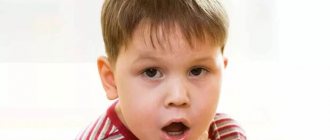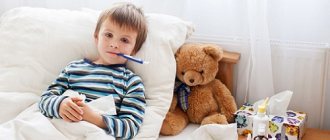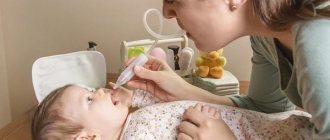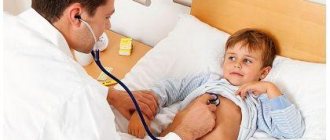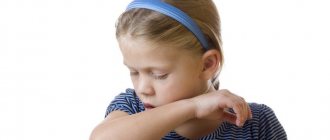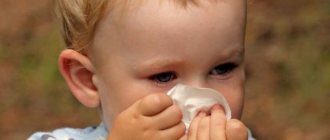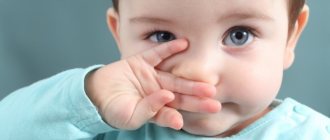A runny nose and cough in a child without fever is a problem that mothers often complain about. Such symptoms, first of all, cause concern for the baby, and also always bring a lot of trouble: cancellation of plans, absence from school (if you have a schoolchild) and often a visit to the doctor.
But perhaps it's not so scary? Let's figure out what causes a cough and runny nose without fever, how to treat it and what kind of prevention is required.
Problem Definition
A cough, like a runny nose, is just an indication of a problem in the body, for example, an infection, a cold or an allergy. If there is an inflammatory process in the body, then such a symptom as fever will not be long in coming. But if it is not there, it can be difficult to determine how dangerous the disease is for the child.
Let's consider the probable causes, ranking them according to the degree of possible threat. By the way, the term “runny nose” used by doctors is often changed to the colloquial “snot”. In the article, both concepts will be used equally, as they are found in everyday life.
Physiological runny nose in infants
Coughing and snot in a child under one year old can seriously frighten the mother. Meanwhile, this is an absolutely natural process associated with the gradual adjustment of all vital systems of the newborn.
Nasal discharge appears due to the fact that the excretory systems and capillaries are not yet able to cope with their functions.
Soon everything will be back to normal. In the meantime, since the child is constantly lying down, the cough is easy to explain: part of the mucous secretion flows down the nasopharynx, which causes a reflex cough.
There is no need to treat such a runny nose in a child with drugs. It is enough to clean your nose more often with a cotton swab or aspirator, and also provide humidified air in the room. An open window in the nursery, contrary to popular belief, will not worsen the cough, but will make it easier for the baby to breathe. But all sorts of “proven” folk remedies, for example, instilling breast milk, a solution of honey, aloe juice and other liquids with unproven effectiveness into the nose, can be harmful.
Mother's milk is especially dangerous in this regard, which is recommended not only by grandmothers, but also by some Soviet-trained doctors. Antibodies, the therapeutic effect of which is expected, are actually contained in it, but they only exert their effect when ingested. But in a sweetish environment, viruses and bacteria multiply well, which, if they enter the nasopharynx, will harm the baby.
This reason is the most likely, but not the only one, so if a child has a cough without rhinitis or a runny nose with cough that does not stop for a long time, be sure to consult a doctor! In children under one year of age, the immune system is not yet fully formed, so complications from diseases develop very quickly.
Symptomatic therapy
To make breathing easier, instill vasoconstrictor drops into your nose (Vibrocil, Otrivin, Nazol Baby). Remember, the maximum course of treatment with the drug is 5 days. With longer therapy, the lining of the sinuses becomes dry and vulnerable to secondary infection.
Monitor the air temperature and humidity level in the room. If the norm is not met (18-20°C, 50-70%, respectively), adjust the power of the heating boiler and hang a wet towel on the radiator.
If a child complains of dryness and sore throat, moisten the mucous membrane with inhalation. Such procedures are indicated for children over two years of age, in the absence of high fever and a tendency to nosebleeds.
Symptomatic treatment can be carried out using traditional medicine. To reduce the intensity of a dry cough, give your child warm milk with the addition of honey, butter, and alkaline mineral water. Do foot baths, drainage massage, rubbing your back and chest.
Children's cold
A common cold is what parents first assume when they see a child’s snot and cough without fever. Often these assumptions are correct: if there is no fever, but there is a runny nose, the throat is reddish and slightly loose, then most likely it is a common ARVI. A dry cough will soon appear, which will then be replaced by a wet cough during the recovery stage.
ARVI spreads quickly among children, so it is not difficult to become infected at school, kindergarten or clinic. If the immune system is weak, and the child is cold or has eaten/drank something cold, the disease will not take long to arrive. Such viruses are especially rampant in the off-season, and they are constantly changing.
So it is impossible to predict the course of a cold in advance. The disease can develop with a severe runny nose, and a high temperature without snot and cough is also possible. Often, with a cold, children complain of headaches, weakness, and the body may “ache.” The sick person must be put to bed.
The most important thing you need to know: the main sign of a cold is snot, since viruses enter the body through the nasopharynx. If a runny nose does not begin, then the cause may be the influence of bacteria or fungi.
Every parent knows how to treat a cold:
- bed rest;
- hot drinks in large quantities;
- honey, raspberries, radishes;
- healthy sleep;
- fresh air (after the fever subsides).
Of course, you shouldn’t use all the means that were used on you as a child. But at the same time, traditional medicine in the case of colds turns out to be quite effective.
The main task here is not to prevent the body from coping with the virus on its own.
If a dry cough without snot lingers and does not allow the child to sleep, it is necessary to give an expectorant or soften it with inhalations.
Babies who are not yet able to cough on their own need help - massage. You can “treat” snot, or rather, reduce its amount, by rinsing your nose with salt. Other medications are aimed mainly at relieving symptoms and should be used with caution.
Please note that antibiotics are not taken for snot - only in particularly severe cases and on the recommendation of a doctor.
Products for the treatment of allergic rhinitis and cough
Cough and runny nose during allergies cannot be cured with expectorants and vasoconstrictors. To eliminate symptoms, it is necessary to protect the child from contact with the allergen. In order to relieve inflammation in the nasopharynx, doctors recommend giving the baby fourth-generation antihistamines.
Erius syrup . The medicine can be given to children from six months of age. The syrup does not affect the functioning of the central nervous system, does not cause drowsiness, and does not irritate the lining of the digestive tract. After taking it, children's cough, runny nose, lacrimation, and skin rash decrease and disappear. The drug begins to act after half an hour, and the effect lasts throughout the day.
Desloratadine tablets . The drug is indicated for the treatment of allergies in adults and children over 12 years of age. The duration of action of the tablets is 24 hours. Therefore, to eliminate cough and runny nose without fever, give them to your teenager once a day at the same time. The duration of the course is 4-7 days, depending on the severity of the symptoms.
Antiviral drugs . During colds, the child’s body produces interferon to fight viruses. If the immune system is weak, it is necessary to help it cope with the pathogen. To do this, the baby is prescribed antiviral drugs with a narrow or broad spectrum of action.
Runny nose and cough with reduced immunity
A runny nose without fever in a child can be extremely dangerous if we are talking about reduced immunity. The fact is that the appearance of a temperature at the onset of the disease indicates that the body’s protective reaction has worked (infections at temperatures above 38 die or, at least, do not multiply).
That’s why it’s so important when you’re sick not to lower your temperature (to reasonable limits) and to warm up and sweat properly. After this, a turning point will come, and the baby will begin to recover.
But if the disease begins in a child without fever, then he will be defenseless against the infection, which will begin to develop very quickly. And since usually the temperature also serves as a signal for parents that something is wrong with the baby, and in this case nothing causes concern, this can be extremely dangerous.
Therefore, snot without fever cannot be ignored.
If there is added drowsiness, lethargy, vomiting, or lack of certain reactions, an ambulance is needed.
How to treat a child's cough. What helps with cough at home
How to quickly cure a child's cough at home. Of course, a cough should be treated by a doctor. You simply cannot determine what medications should be given to your child on your own, without medical education. But to relieve the symptoms of cough, help the child cope with this illness faster, perhaps by knowing some recommendations.
The first condition for a quick recovery: it is important that the approach be comprehensive. In addition to taking medications, it is necessary to include in therapy the use of traditional medicine and carry out physiotherapeutic procedures.
Drug therapy
If the cause of the cough is ARVI, then treatment should include expectorant herbal preparations. For this purpose, you can use herbal medicines, black radish with honey, and anise. Such products can be given to children who are at least 3 years old. You can give medications only if the child is not allergic to them. Medicines such as Gedelix and Prospan are excellent for coughs.
Their active substances are saponins and plant alkaloids. These substances thin the mucus in the bronchi, activate its secretion, and increase coughing. Despite the fact that they belong to the group of herbal drugs, they must be used strictly in accordance with the instructions, since exceeding the dosage is fraught with increased toxic effects and the appearance of adverse reactions in the form of nausea and vomiting.
Such medications are not prescribed to young children, not only because of an allergic reaction, but also because it will be difficult for them to cough up copious amounts of mucus.
Medicines for dry cough are aimed at thinning mucus. They are characterized by anti-inflammatory effects. Herbal preparations have a pronounced expectorant effect and increase the secretion of sputum from the bronchi. Presented in the form of syrups, which children happily take. As soon as the cough changes from dry to wet, treatment with such drugs should be stopped.
As for antibiotics and bronchodilators, the pediatrician can prescribe them only if bronchitis or pneumonia has been diagnosed, which were caused by a microbial infection. For viral infections that manifest themselves in the form of a cough, their use is unacceptable, as they can worsen the patient’s condition.
It is for this reason that if there is a cough of any kind, it is necessary to show the child to a pediatrician, who will conduct an examination, prescribe a series of tests and be able to accurately determine the cause of its occurrence. Based on the diagnosis, a treatment plan will be drawn up.
Bronchodilators are drugs that help relax the muscles of the bronchi and expand their lumen. Such drugs are appropriate for obstructive bronchitis and bronchial asthma.
Inhalations
Inhalation therapy for cough is considered one of the most effective. With its help, it is possible to deliver active substances to a problem area. Inhalation is an excellent way to relieve coughing, remove phlegm and moisturize the mucous membrane.
There are two types of inhalations:
- With the help of steam. A decoction of herbs, saline solution, and essential oils can be used as a liquid. To carry out the procedure, a special device in the form of an inhaler is suitable, or you can simply breathe steam over a pan.
Allergic reaction
A cough without a runny nose (or with a weak one) may appear due to allergies.
If a child coughs dryly and harshly, and a runny nose is accompanied by tears, redness of the eyes and face, and swelling, then most likely this is the problem.
In this case, the snot will be either completely transparent or slightly whitish.
Allergies can be triggered by anything:
- polluted city air;
- detergents, perfumes;
- smoke from cigarettes;
- plants (pollen);
- pets.
It will not be possible to isolate the allergen without the help of a specialist. After you receive recommendations from your doctor (the allergen is detected using laboratory analysis), it is worth removing from the child what triggered the allergic reaction.
The doctor will also prescribe how to treat it - antihistamines and, possibly, diet.
If your baby is prone to allergies, it is important to keep the house clean, do wet cleaning and take immune-strengthening medications.
Also, allergic rhinitis can be seasonal: in the spring, when most of the plants that cause allergies bloom, and in August (at this time, ragweed, which is the strongest allergen, blooms), it is necessary to constantly monitor how the child is feeling.
Another way to help a child with an allergic cough is breathing practices. Try:
- Game of "cow". It's simple - you need to imitate the mooing of this animal. While the baby is humming, lightly pat him on the back. You will hear the baby's voice change. This exercise helps train the ligaments and airways.
- Singing children's songs in the voices of different animals. It also has a beneficial effect on the respiratory system.
- The most common deep breaths and exhalations also contribute to recovery.
